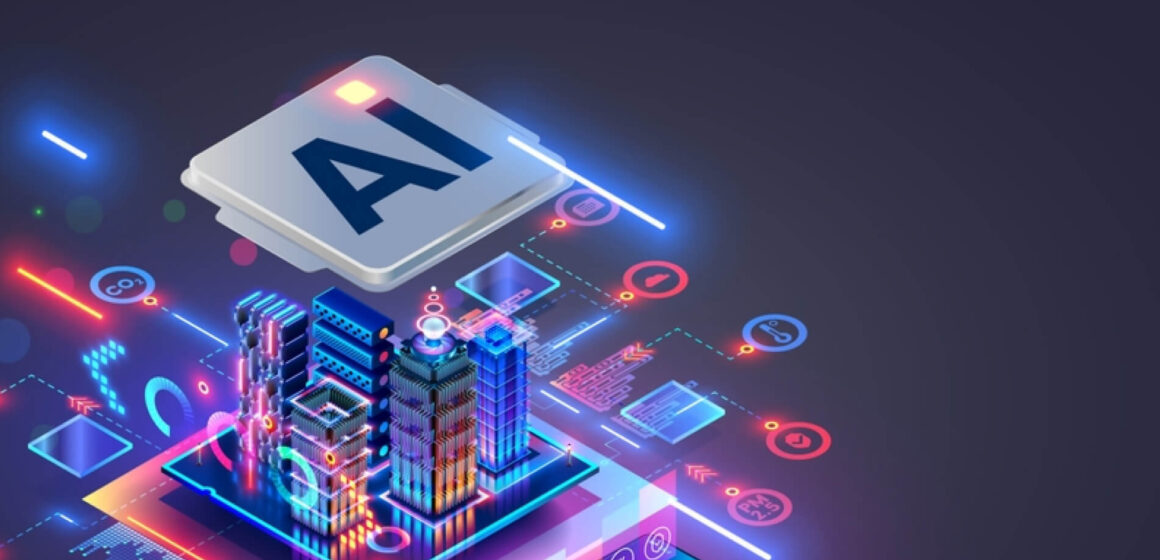The decentralized application (DApp) ecosystem is rapidly evolving in 2025, and artificial intelligence (AI) is at the heart of this transformation. From automating smart contract audits to enhancing user personalization, AI is reshaping how developers build, deploy, and maintain DApps. With the growing demand for seamless Web3 experiences, AI is no longer a luxury—it’s a necessity.
For any dapp development company or startup offering dapp development services, integrating AI into workflows offers not just a competitive advantage but also operational scalability. This blog explores how AI is revolutionizing each stage of the DApp lifecycle in 2025.
The Rise of AI-Enhanced Web3 Development
In earlier stages of blockchain development, the focus was heavily on building decentralized functionality—immutability, censorship resistance, and token economics. Today, those foundations are well-established. What’s emerging now is an intelligence layer atop Web3. AI adds logic, automation, prediction, and optimization across the stack.
Developers are integrating machine learning models into DApps for real-time data processing, predictive insights, and smart automation. Whether you’re a solo builder or working with a full-scale dapp development company, AI tools are now integral to enhancing productivity and output quality.
AI in Smart Contract Generation and Testing
Smart contracts remain the backbone of any decentralized application. But writing and testing them can be complex, error-prone, and time-consuming. In 2025, AI tools like GitHub Copilot, GPT-5, and ChainGPT are dramatically simplifying these processes.
AI now assists developers by auto-suggesting smart contract code in Solidity or Vyper, flagging potential vulnerabilities as you type, and recommending fixes. AI-powered testing tools simulate millions of contract interactions to find edge cases. This dramatically reduces human error and accelerates development timelines.
For dapp development services, AI ensures smart contracts are more secure, efficient, and compliant with industry standards, making it easier to meet client expectations and regulatory requirements.
AI-Powered IDEs and Code Audits
AI-driven integrated development environments (IDEs) are transforming how code is written and reviewed. These intelligent environments can analyze project structure, highlight bugs, suggest architecture improvements, and even refactor code.
Automated AI audits are particularly crucial. Security remains a top priority for any dapp development company, and AI can scan for known vulnerabilities, business logic errors, and potential exploits faster and more thoroughly than manual review alone.
This automation is especially valuable during the pre-deployment phase when issues are most expensive to fix. AI tools like MythX, Slither integrated with GPT models, and proprietary AI security agents are becoming standard in the Web3 developer’s toolkit.
Personalizing the DApp User Experience with AI
DApps have traditionally struggled with user experience compared to centralized apps. AI is closing that gap by enabling dynamic, personalized interfaces.
Machine learning algorithms now analyze on-chain and off-chain behavior to offer user-specific interfaces, features, and even pricing models. For example, AI can personalize a DeFi dashboard based on a user’s transaction history or recommend NFT content tailored to their preferences.
This kind of smart personalization not only improves UX but also boosts retention and engagement—key metrics for any DApp’s success. A dapp development company looking to deliver high-performing apps must now include AI-driven personalization as part of its core dapp development services.
AI for Real-Time Oracles and Data Feeds
AI’s integration with oracle systems is reshaping how external data is processed and fed into smart contracts. In 2025, real-time data processing using AI ensures that on-chain decisions are made with the most accurate and relevant information.
AI-enhanced oracles filter noise, detect anomalies, and validate data in a decentralized manner. This is particularly useful in sectors like decentralized insurance, where smart contracts depend on weather data, or in supply chain DApps where shipment tracking must be both real-time and reliable.
For developers and companies offering dapp development services, leveraging AI-driven oracles means smarter contracts that act with greater precision and confidence.
Streamlining DApp Testing and Deployment with AI
Testing a DApp for scalability, gas efficiency, and UI responsiveness across devices and networks has always been tedious. AI now automates many parts of this process.
AI testing frameworks simulate high-volume user interactions, conduct stress testing, and even identify UI/UX inconsistencies across browsers and wallet integrations. AI can predict user drop-off points and recommend optimizations to reduce churn.
Additionally, deployment pipelines now include AI checks for gas optimization, contract upgradeability, and regression risks. This ensures that when a dapp development company launches a project, it’s production-grade from day one.
AI-Driven Customer Support and Community Engagement
Customer support is often a weak point for DApps due to the technical nature of blockchain products. AI-powered chatbots and voice assistants are bridging this gap in 2025.
These assistants are trained on DApp-specific knowledge bases, FAQs, transaction histories, and blockchain analytics. They can answer complex questions, resolve wallet issues, and even guide users through onboarding—all in real time.
Moreover, AI tools monitor social media and community platforms like Discord and Telegram to detect sentiment, flag negative trends early, and recommend responses. This level of proactive engagement is invaluable for any dapp development company trying to build and retain a loyal community.
Managing On-Chain Governance Using AI
Decentralized autonomous organizations (DAOs) and other governance models have exploded in usage, but managing proposals, voting patterns, and stakeholder engagement remains a challenge.
AI in 2025 is solving this through predictive governance tools. These systems analyze historical voting trends, simulate future proposals’ outcomes, and suggest optimal token weight distribution for fair governance.
For a dapp development company building DAO tools or governance-heavy DApps, these AI capabilities are game-changers. They enable smoother operations, better decision-making, and more equitable community participation.

The Role of AI in Cross-Chain and Modular DApps
AI is also playing a crucial role in abstracting blockchain complexity. With the rise of modular architectures and cross-chain DApps, developers need help managing interoperability, security layers, and performance optimizations.
AI tools automate routing decisions between chains, gas fee comparisons, and contract calls across rollups. AI agents can determine which layer (L1, L2, ZK, etc.) is best suited for a particular transaction based on latency, cost, and network congestion.
A modern dapp development company must offer AI-backed routing and modular DApp design as part of their dapp development services to stay ahead in 2025.
Challenges and Ethical Considerations of AI in Web3
Despite its benefits, AI brings challenges to the DApp space. AI systems can introduce biases in recommendations or outputs, especially when trained on limited blockchain datasets. There’s also the issue of explainability—can a user understand and trust the AI’s decision?
Another concern is data privacy. AI models often require user data, which conflicts with Web3’s ethos of self-sovereignty and decentralization. Balancing personalization with privacy remains a delicate task.
For any responsible dapp development company, integrating AI ethically and transparently is a new core principle in offering dapp development services.
The Future of AI and Web3 Collaboration
As AI and blockchain technology continue to mature in parallel, their intersection will unlock new forms of intelligence in DApps—autonomous agents, self-improving contracts, and real-time behavioral analytics.
The AI agents of 2025 aren’t just assisting development—they’re becoming part of the runtime. Smart contracts that can rewrite and optimize themselves, frontends that adapt to user sentiment, and backends that intelligently route activity across chains are no longer fiction.
Companies offering dapp development services that embrace this convergence early will be at the forefront of a new Web3 paradigm—one where AI is the silent engine behind every interaction, optimization, and decision.
Conclusion
AI is revolutionizing DApp development workflows in 2025 by injecting intelligence, speed, security, and personalization into every layer of the tech stack. From smart contract generation to cross-chain execution, AI is no longer a supporting actor—it’s a lead player.
Whether you’re a solo builder or part of a dapp development company, embracing AI-powered development tools is essential to remain competitive. As user expectations evolve and blockchain systems grow more complex, the integration of AI into dapp development services will define the winners of this next era of Web3 innovation.


Leave a Reply